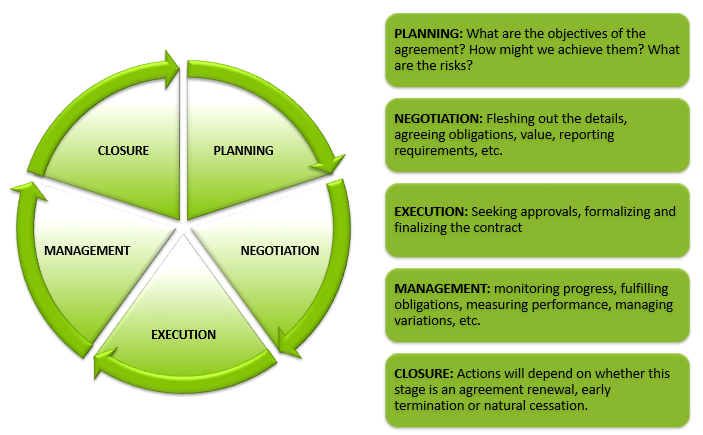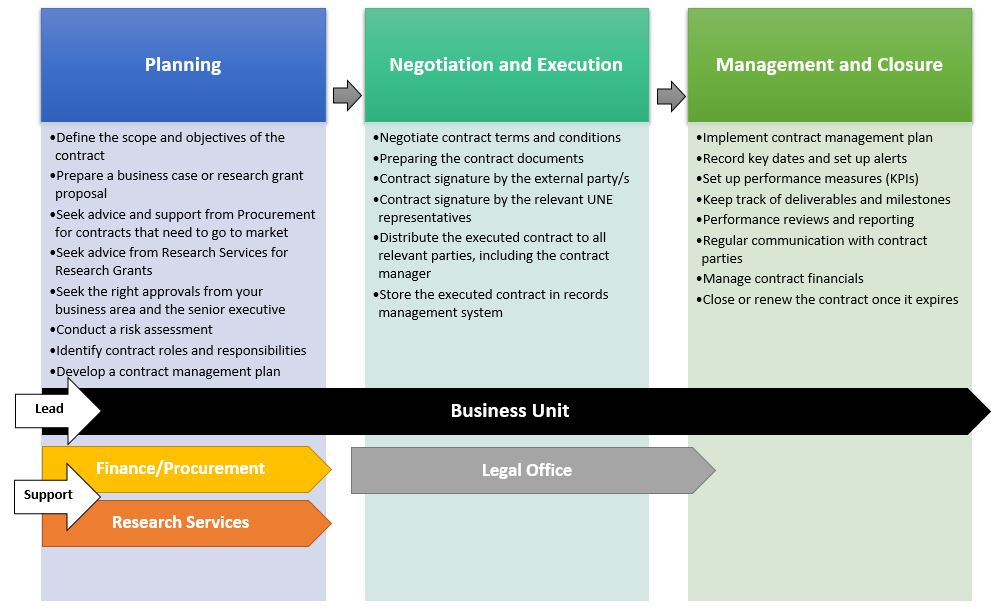Contract Management at UNE
Contract Management is an important and essential function of any modern organisation, and UNE is no exception. Many of our day-to-day dealings involve managing or negotiating agreements with external parties, whether that be capital works, research projects or software licenses. Effective contract management is a skillset required by an increasing number of staff across the University. It is critical that staff understand UNE's responsibilities and obligations under a contract, and manage risks throughout the life of the agreement. Sound contract management will increase the opportunities to maximise benefits to UNE, and ensure the University meets our contractual obligations.
What is a Contract?
A contract is any agreement which generates benefits or imposes obligations on UNE. A contract is legally enforceable and has terms mutually agreed to by UNE and one or more parties. Contracts may also be referred to as agreements, and, for the purposes of Contract Management at UNE, we also include Memoranda of Understanding (MoUs), which are typically not binding or enforceable.
Contracts can look like this:
- UNE "gets paid" to do/deliver something
- UNE "pays" someone else to do/deliver something
- UNE has obligations, but there are no payments involved
If you are unsure, contact UNE's Legal Office.
What is Contract Management?
Contract Management describes the activities undertaken to monitor the promises made in an agreement, ensuring that all parties meet their contractual obligations. It is the processes and procedures that we implement to manage the negotiation, execution, performance, modification and closure of contracts. Contract Management activities will vary in rigour, resources and effort, dependent on the risks and value associated with the agreement.
The phases of contract management are:
The Contract Process at UNE
There are a number of activities involved in each phase of the contract management process at UNE. In addition, there are different areas of UNE involved in each stage, primarily the Business Unit (School or Directorate), who initiates and manages the contract, and the Legal Office, who help by arranging the execution of the contract. Other supporting areas, including Finance and Procurement or the Records Team may also be involved, depending on the nature of the contract.
In broad terms, the process looks like this:



